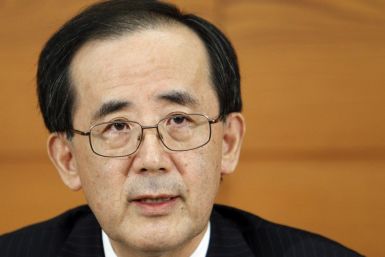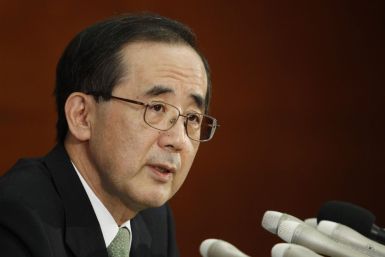The end of super-cheap money from the Federal Reserve is trumping corporate earnings results as a key risk to hedge for stock investors.
Divisions at the U.S. Federal Reserve over how soon to reverse course on monetary policy emerged more clearly last month, although the central bank appeared intent to complete a $600 billion bond-buying plan.
It would be a surprise if the U.S. Federal Reserve did not complete its $600 billion in bond purchases, though the benefits of doing more have fallen, a top Fed official said on Friday.
Payroll gains in the US private sector for February and March 2011 is the largest since early 2006.
Spot Gold slumped 1.4% lunchtime Friday in London, falling back from its highest-ever monthly close as the Dollar jumped on news of stronger-than-expected US jobs hiring in March.
St. Louis Federal Reserve chief James Bullard urged the U.S. central bank on Tuesday to begin reversing its campaign of monetary easing, saying it could trim its $600 billion bond-buying program by $100 billion.
The U.S. economy still needs support from the Federal Reserve's full $600 billion planned bond purchases, despite signs its recovery is becoming self sustaining, top Fed officials said on Monday.
The U.S. Federal Reserve Bank should complete its planned $600 billion in bond purchases, but probably does not need to do buy additional bonds to support the economy, a top Fed official said on Monday.
US monetary policy is decided by the 12 members of the Federal Reserve Open Markets Committee (FOMC). These are some of the most powerful individuals in the world.
The biggest economies in the world may begin to meaningfully exit from ultra-loose monetary policies in 2011. For the forex market, the expected schedule of exits may dominate currency movements this year.
The Bank of Japan (BOJ) should be much more aggressive, said Paul Sheard, global chief economist of Nomura Securities.
In the backdrop of massive global events in the Middle East and Japan, something else significant is developing: the continued deterioration of the US housing market.
David Watt of RBC Capital Markets expects Plosser to not only vote against the Fed’s policy of quantitative easing, but also for a 25 basis point rate hike.
The U.S. economic recovery is on solid ground, making it unlikely the Federal Reserve will extend its bond-buying stimulus program, Atlanta Federal Reserve Bank President Dennis Lockhart said on Friday.
The Federal Reserve earned a record $81.7 billion in 2010, largely on investments made to help the economy and banks weather the 2007-2009 financial crisis, and turned the bulk of it over to the U.S. Treasury.
The U.S. debt situation is at a tipping point, Dallas Federal Reserve Bank President Richard Fisher said on Tuesday, and urged the U.S. central bank to refrain from any further stimulus measures.
The Japanese government plans to inject public funds into banks in areas ravaged by the March 11 earthquake and tsunami to make sure that businesses in the area can get credit to rebuild their operations, The Nikkei newspaper said in its Sunday edition.
Wednesday’s housing data was terrible. February housing starts dropped to an annual rate of 479,000 units and building permits fell to an annual rate of 517,000 units. Both figures measure the pace of US housing construction.
What's your true level of risk today? No idea. But the least your fund manager, advisor or favorite financial columnist can do today is remember the lesson of 2007, and highlight the range of risks and possible fall-out which might lie ahead. Take inflation, for instance. Though small, the risk of currency devaluation and hyper-inflation in the developed West is still materially underpriced by gold bullion
The Bank of Japan (BOJ) said on Monday it will increase the size of the asset purchase program from five trillion yen to 10 trillion yen and promised to inject additional liquidity into the financial system battered by the triple whammy of a disastrous earthquake, a tsunami and an unfolding nuclear crisis.
The Bank of Japan (BOJ) said on Monday it will increase the size of the asset purchase program from five trillion yen to 10 trillion yen and promised to inject additional liquidity into the financial system battered by the triple whammy of a disastrous earthquake, a tsunami and an unfolding nuclear crisis.
The Bank of Japan eased its ultra-loose monetary policy further on Monday by expanding its asset-buying programme while keeping rates on hold.
























